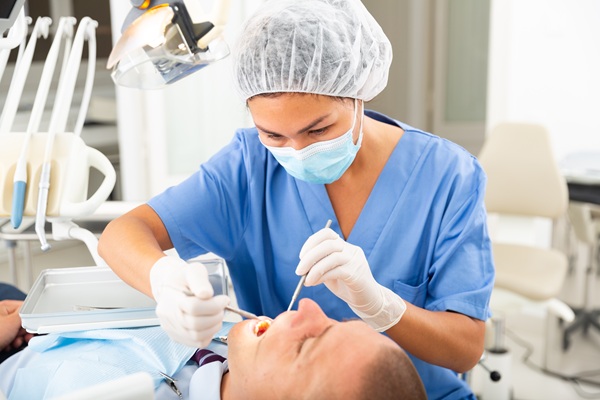 Dental crowns protect teeth, and patients should not experience any complications such as increased teeth sensitivity or gum pain while wearing them. If dental crown issues develop, then patients are encouraged to contact the dentist as soon as possible to schedule a visit and have the issue properly examined and treated.
Dental crowns protect teeth, and patients should not experience any complications such as increased teeth sensitivity or gum pain while wearing them. If dental crown issues develop, then patients are encouraged to contact the dentist as soon as possible to schedule a visit and have the issue properly examined and treated.
How to deal with issues with your dental crowns
Although dental crown issues are rare, they can still occur. While a prompt visit is necessary, in many instances, dental crown issues are not considered a dental emergency. While waiting for a more opportune time to visit the dentist to have the issue resolved, patients can minimize any discomfort they experience by using a saltwater rinse, applying a cold compress to the affected area, and utilizing over-the-counter pain relief medication.
Consistently rinse your mouth with saltwater
One of the main causes of discomfort with teeth that have a crown is bacteria that finds its way inside the dental crown. This can occur as a result of damage, because of the crown becoming loose, or from a variety of other dental crown issues. One way to relieve discomfort caused by bacteria is to keep the mouth as clean as possible until the crown is fixed. Saltwater is an easy and effective way to keep the mouth clean. Simply use a saltwater rinse several times each day and avoid any foods or drinks that contain high levels of sugar. Sipping water throughout the day can also help keep bacteria washed away.
Apply a cold compress to the affected area
Another result of bacteria invading a tooth that is covered by a dental crown is swelling of the gums and irritation of the tooth’s root. One way to reduce this discomfort is by applying a cold compress to the affected area. Hold the compress for approximately fifteen to thirty minutes to keep swelling and sensitivity to a tolerable level.
Use over-the-counter pain reliever responsibly
Store-bought pain relief medication can be a useful way to keep swelling down and reduce the overall discomfort experienced after dental crown issues develop. However, it is important to not exceed the recommended dosage listed on the bottle or the dentist’s recommendations.
When are dental crown issues considered a dental emergency?
Every instance of a dental crown issue requires prompt care, which may involve repositioning or replacing the dental crown. However, an issue becomes a dental emergency, meaning treatment cannot wait until the next day, when the pain becomes intolerable or if signs of an infection develop, such as swollen lymph nodes or fever.
Are you having issues with your dental crowns?
If you are experiencing complications with your dental crown and need to schedule a dental visit to have the issue examined and promptly treated, then we encourage you to contact our friendly dental team by phone or message to set up a time to come and see us. We can help manage the discomfort and ensure the dental crown issues are taken care of long-term.
Request an appointment or call Martin Dentistry at 209-299-7907 for an appointment in our Stockton office.
Related Posts
Dental crowns are durable and effective for restoring damaged or weakened teeth. They improve the tooth's structure and function while also enhancing your smile's appearance. However, proper maintenance can extend their lifespan and ensure long-term oral health. With the right care, these restorations can last several years, providing a reliable and aesthetically pleasing restoration.A consistent…
In some form, dental crowns have been a part of dentistry for centuries. This treatment is an important restoration method for people who have severe tooth decay. Cosmetic dentistry also uses crowns to improve patients’ smiles. If you are unhappy with the appearance of your teeth, a crown could be the right solution. Your dentist…
Dental crowns are a great way to restore the health and appearance of your smile after oral health issues develop. Dental crowns work by surrounding a vulnerable or damaged tooth and offering protection from further damage. Crowns may also be used for teeth replacement purposes as well.Several of the more common oral health issues that…


